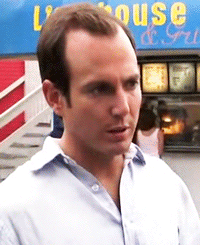I know Michael Wolff is a provocateur, and I take just about everything he does, says or writes with a large grain of salt. But this Technology Review piece about Facebook being “a bust” is just ridiculous in its arguments and assumptions. He basically makes a few on-the-nose observations, draws all the wrong conclusions, then dismantles his original thesis.
Basically, he writes, Facebook is destined to fail because it’s ad-supported.
He makes a correct, if rather obvious, observation: “At the heart of the Internet business is one of the great business fallacies of our time: that the Web, with all its targeting abilities, can be a more efficient, and hence more profitable, advertising medium than traditional media.” And he is right when he says that “the daily and stubborn reality for everybody building businesses on the strength of Web advertising is that the value of digital ads decreases every quarter, a consequence of their simultaneous ineffectiveness and efficiency.” And of course he’s on target when he reports, “I don’t know anyone in the ad-Web business who isn’t engaged in a relentless, demoralizing, no-exit operation to realign costs with falling per-user revenues, or who isn’t manically inflating traffic to compensate for ever-lower per-user value.”
But there’s nothing new there — any of it. We already know CPMs don’t work. As an industry, we’re testing out (or should be, anyway) new revenue streams to see what will work. Pay walls? Maybe — but the jury’s still out whether non-print-subscribing users will put up money for the website only. Cutting jobs (and quality)? Likely, except while it helps the bottom line in the short-term, it erodes trust between reader and media in the long-term. Better targeted ads? Probably, yes, until everyone opts out and/or the government bans it. Running the exact same stories on different local channels to save on news-gathering and ad sales teams? I hope to the heavens that stops really soon. Meantime, our collective time is probably better spent thinking up new ways to do business online and encouraging and learning from those companies who are testing new ways of doing business — like Facebook. Otherwise, you’re just a hater.
So his conclusion that “Facebook is not only on course to go bust, but will take the rest of the ad-supported Web with it” is an utterly hyperbolic eye-roller. And his acknowledgment that the company “has convinced large numbers of otherwise intelligent people that the magic of the medium will reinvent advertising in a heretofore unimaginably profitable way, or that the company will create something new that isn’t advertising, which will produce even more wonderful profits” is actually an argument in favor of the very thing he claims to want fixed a mere paragraph before. Not only should Facebook “reinvent advertising,” it must. Because the way things work now for consumer websites, as Wolff acknowledges, isn’t working. And I think it will. Or at least I wouldn’t bet against ’em.
Wolff draw parallels between Google and Facebook, yet somehow fails to draw a similar parallel for Facebook’s growth potential. He praises Google for its ad system, acknowledging that it also “didn’t have the big idea at the company’s founding, either,” but dismisses Facebook altogether: “Facebook has, in some yet-to-be-defined way, redefined something. Relationships? Media? Communications? Communities? Something big, anyway.”
“Big” is right — it has redefined all those things, so therefore it can and will create its own, new reality. So when Wolff says that Facebook’s strategy is “Just wait,” I say, “Hell, yes.” The company, in its brief life, has completely flipped the script on all the items he mentions. They just did it. They’re doing it. It is, in fact, as Wolff says, “the bridge to new modes of human connection.” And that is the opposite of being “left in the same position as all other media companies.” Most other media companies are failing at the ad-web business. We know this. Most other media companies (and, frankly, non-media companies) are drafting off of what Facebook is doing — and following its rules and ecosystem, just as they did with Google in years past.
I’m not Facebook’s biggest fan; it often pisses me off as much as it pleases me. But I’ve seen it change the web business from the front lines these past few years. Jobs are being created — “Social Media Editor,” “Social Marketing Manager” — that didn’t exist only two or three years ago, and these are being directly guided by Facebook (and, to a lesser degree, Twitter, Tumblr, Pinterest, etc.): its game, its rules. As Google did with “SEO,” so Facebook is creating an industry around its product.
I guess the most (and the least, after all these words I just typed) I can say is this: I’m looking forward to the day when I can say, “I bought Facebook at $29.”


